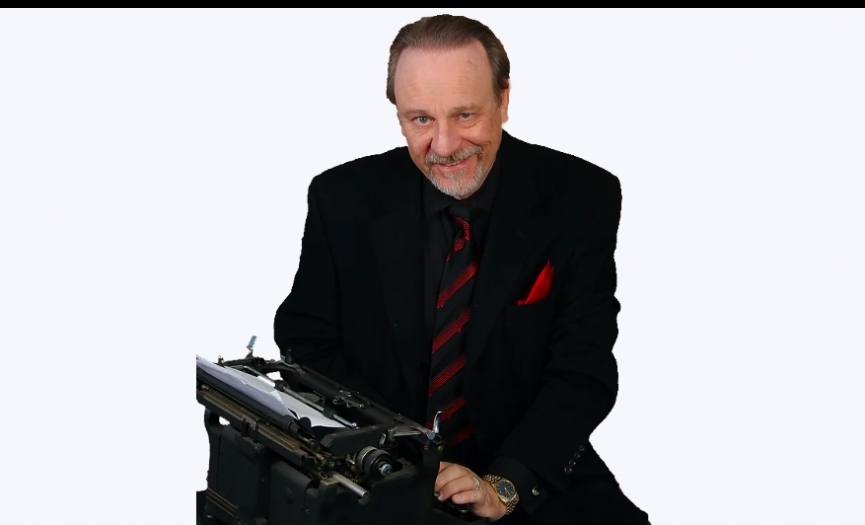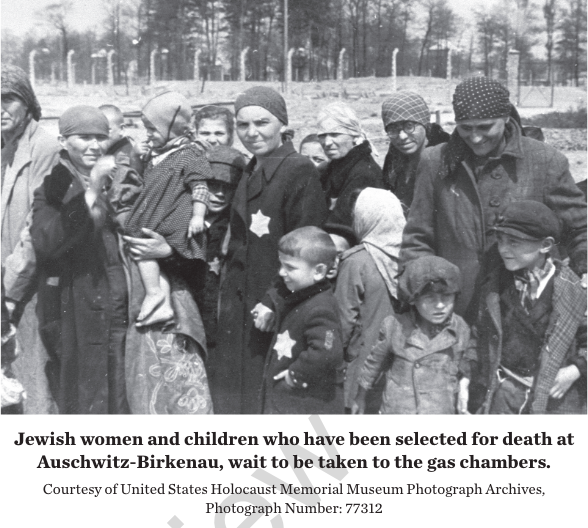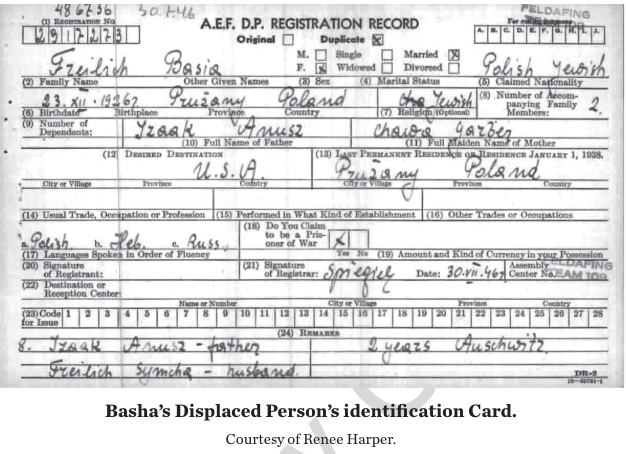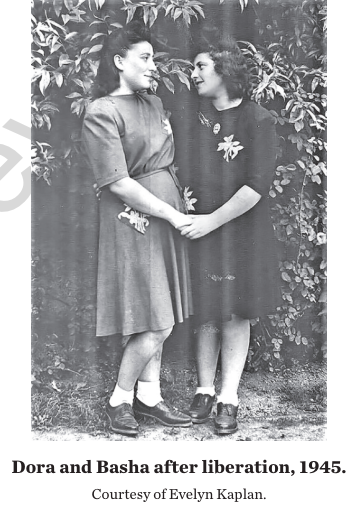
Douglas Wellman, Award Winning Author of "A Teenage Girl in Auschwitz: Basha Freilich and the Will to Live"
Today I would like to introduce you to Douglas Wellman, the award-winning author of the book "A Teenage Girl in Auschwitz: Basha Freilich and the Will to Live"; a very emotional but true story...
By Bessy ADUT
Douglas Wellman is very passionate about history and he tells stories of people who has experienced extraordinary life circumstances. Douglas sheds light on the human experience and the human spirit. Through this interview, you will get a chance to know about him and his work better. I highly recommend reading his latest book and checking out all his work on his website as well. You can check out his full bio in the link below:
www.douglaswellmanauthor.com/author-douglas-wellman
Where are you currently residing?
I had lived in Los Angeles for thirty-five years when I was a television producer-director and the Assistant Dean of the School of Cinematic Arts at the University of Southern California. I retired from USC ten years ago and currently live in St. George, Utah with my wife, Deborah.
What are your current projects?
I have been trying to take a brief rest, but I haven’t been entirely successful. Between 2014 and 2023 I wrote five books, which occasionally overlapped. My books "Surviving Hiroshima: A Young Woman’s Story", and my latest book, "A Teenage Girl in Auschwitz: Basha Freilich and the Will to Live", are true stories based on the testimonies of the survivors, but they also required a great deal of research to provide the historical context to give the reader a greater grasp of the situation. I enjoyed this a great deal, but it was also physically and mentally taxing. Running down what appeared to be a simple historical fact would sometimes take me late into the night, gathering all the bits and pieces and then sorting them out to find only what was pertinent to my specific story.
While I was writing, I was also working a part-time retirement job as a hospital chaplain in palliative care in the intensive care units of a local hospital. In Los Angeles. I also had a ministry for the homeless of the Los Angeles suburb, the San Fernando Valley, for six years. I really enjoy helping people who are in crisis. After six interesting years at the hospital, I decided it was time to retire. Again, I thought I might take a little break, but I found myself coming up with ideas for historical websites, podcasts, and some writing projects, so I’m still sitting in my office, looking things up, and making notes. The big difference is, I don’t have a publication deadline. I can always stop for an hour and take a nap. A simple pleasure...

Please share how you got started and got to where you are today...
As a child, I loved to read. I would frequently ride my bicycle from our new home in the middle of nowhere into the city to go to the library, and pile the basket with books. I found it remarkable what some people could do with the English language. I decided I wanted to be a writer. My father dug out his old, pre-World War II typewriter and gave it to me so I could bang out my thoughts on paper, then gave me a brand-new typewriter on my fifteenth birthday. I continued to write. I wrote primarily comedy at that time and while in college I became the editor of the literary magazine. Then, I became interested in television. That derailed me from the writing track slightly, although I occasionally wrote uncredited material for TV shows.
I was asked to be a consultant for a government agency long ago, and there I met some very interesting people. One of them came to me with information he had found about the genius/madman/billionaire, Howard Hughes. It was, and is, one of the strangest stories I’ve heard. He asked if I was interested in taking the material and writing a book. Although I was initially a bit puzzled about whether the story was true or not, I felt it was certainly worth pursuing. That story turned into the book "Boxes: The Secret Life of Howard Hughes". We continued to get more and more information about Hughes after the book was published. Because I was completely convinced that his strange story was true, I wrote a second edition of the book.
What happened after that, the stories found me rather than having to go looking for them.
Neither my television career nor my writing career have been easy. Getting started in Hollywood was quite a challenge. Fortunately, my father taught me never to quit, so I continued, pushing away one roadblock at a time.
Has it been a smooth road?
I can’t recall anything in my professional life being entirely smooth. In fact, I’ve come to believe that life isn’t supposed to be smooth. When we push through the unexpected, aggravating, and sometimes emotionally painful experiences, we not only achieve our goal, but we validate ourselves as an exceptional person capable of facing tough situations and succeeding. Armed with that knowledge, we gain the confidence to set our goals high, believing we will get there.
Tell us more about your life and career...
I started my television career at a couple of TV stations in Minneapolis and St. Paul. In those days, television stations did a lot of locally originated programming, much of it broadcast live, so I was given the opportunity to put in a lot of time as a director, and later as a producer and writer.
Most of the people I worked with were young, and about my age so we had an enormous amount of fun. Although I have to admit, my sense of humor was not universally appreciated.
One time when the station management suddenly gave me an extra forty hours per week to fill with something. I didn’t think what I did was offensive, but I guess my timing was off.
Whatever it was, they clearly didn’t get it. I was more circumspect at a station thereafter.
When I moved to Los Angeles my goal was to get a job doing sitcoms. The first challenge was to figure out how to continue to eat while looking for work. I had very few people who would help me in life at that time but one of them popped up after I was in LA for about nine months.
He was head of a television production company and he wanted to hire me, but the company could never seem to get a project off the ground. He was frustrated with the situation, but still wanted to help me. He recommended me to another division of the studio. That division hired me as a production manager and I had my foot in the door. Not only that, but I was assigned to work on situation comedies. Again, my sometimes apparently inappropriate sense of humor got me sacked, but a third division of the same studio immediately picked me up.
That studio had an immediate need for a production manager. Yet, as things evolved, they soon needed a director. I stayed with that studio for several years, then was offered a job as vice president of a television production company which focused on, you guessed it, comedy.
While I was primarily a producer there, I also had a multi-show directing contract. I loved the job more than I can express, but it was very hard. At one point I was doing one series in Los Angeles, one series in New York, and one series that traveled around the country, all at the same time. I lived on airplanes. I remember one morning stepping out of my hotel into the sunlight and thinking to myself, what a beautiful city. Then I realized I didn’t know where I was. I had to look around for a car license plate to remind me that I was in San Francisco.
One time, I had a meeting with the company president in the morning and he told me he had made deals to shoot TV specials in Jamaica and Vancouver. That was good. However, I had to do them the same week. That was challenging. I managed to set up and shoot part of the Jamaica show, then I turned it over to another producer and director, went to Vancouver, and shot the show there at the same time the other crew was finishing shooting in Jamaica. I have had other producers tell me that is not possible. It’s only possible if you believe it is possible for you.
A vice president that I had worked for at Fox was consulting at the University of Southern California film school. I ran into him in at a showbiz hang out, a delicatessen, and he asked if I would be interested in helping him set up a student television station at the University of Southern California? It sounded like fun. I thought it would take only six weeks.
It wasn’t very long before one of the people who was teaching the situation comedy class called me, introduced himself, and said they needed a producer professor for the class. Would I be interested? Sure. Six weeks turned into sixteen years with the last ten in the role as Assistant Dean.
I enjoyed every moment of my USC time, but eventually it was time to retire. My wife and I moved to Utah. I had been through seminary, so I had a ministry license. While looking for something to do in Utah a few days a week I learned about a local hospital in need of a chaplain. I was anxious to get the job and even with all of my education and experience, the person in charge of hiring was very particular. It took a lot of work on my part to get the job, but because I do not quit, I was finally accepted. Once in, I got along wonderfully with everyone and I enjoyed my work there very much. While all of that was going on I continued to write books.
What do you think goodness is?
I view goodness as a character trait most easily recognized in our treatment of others. I am fascinated by people and how they interact with others in the world. Over the years, I have seen and worked with many people who enjoyed mistreating others, likely because it gave them a feeling of power. I never understood that attitude, but I’ve seen it a lot.
The character trait of goodness is frequently manifested as one’s desire and willingness to help others, without receiving any personal gain from the situation. The fact that they have made someone’s life a little better, or their load a little lighter, is reward enough for them.
I believe the most important aspect of goodness is kindness. It costs nothing to be kind to someone and we frequently have absolutely no idea how much this simple act can mean to another. A warm smile and a kind word to a stranger may mean a great deal to them.
I have recently developed a neurological disorder which makes it very difficult for me to walk. I use an electric scooter if I have to go far. Many times, I have been in a store parking lot, unloading my scooter from the back of my car, when a stranger has offered to help me. One time a “little old lady” stopped and offered to help. Aside from being elderly, she looked like she weighed less than the scooter. Nevertheless, she was willing to help. I didn’t take her up on the offer but thanked her profusely. Her willingness to help really made my day.
Who are you outside of your professional life?
My work life and my personal life have always been tightly integrated, and that has not always been good. At the height of my television career, my days were generally twelve to fourteen hours long and I frequently used weekends to travel to locations. I was perfectly happy with that situation because I enjoyed my work. The problem arose when I wasn’t working. Things like strikes, program hiatuses, and series cancellations would occasionally leave me with nothing to do for a period of time. My entire self-image was wrapped around my work. If I wasn’t working I, in a way, felt that I didn’t exist. Obviously, this is not a healthy way to conduct one’s life. Now, years later, I have done so many things that my identity isn’t pinned to one of them. If I have nothing to do, which is rare, I am able to simply pick up a book and read or sit on the patio and enjoy the beauty of the mountains. I am perfectly happy to be “just a guy.”
Are you interested in environmental issues?
I believe that we all need to be conscious of our environment and our impact on it. The most graphic example of this in my life was when I moved to Los Angeles in 1978. Coming from Minneapolis, which was relatively clean, the Los Angeles sky was like a gray blanket. I was stunned and even considered for a moment turning around and going back. Everything changed with the introduction of unleaded gasoline and pollution controls. Suddenly, I could look up and see that there was actually a blue sky up there. It certainly wasn’t perfect and isn’t now, but the change was quite dramatic.
Like most people, I can see the tremendous advantage of renewable resources. I don’t view this in regard to climate change or anything like that. I simply view it as common sense. Why would we choose to use up something when we could use something else that we won’t use up? My biggest concern about this is people trying to force us to use energy sources that are currently inadequate for our needs. Renewable energy sounds, and is a great choice. However, converting to those sources before adequate infrastructure has been developed will create an entirely different, and likely much greater, problem. Many people are happily rushing into this, but I’m pretty sure their attitude will change when it’s cold, dark, and they are hungry.
Personally, I am very much in favor of solar energy. The technology for providing that on a grand scale isn’t here yet. The other day I read that solar energy was providing less than 2% of our needs. I didn’t verify that personally, but it sounds about right to me. I believe this will change. If we were to mandate solar roofs on all buildings in the southern part of our country, there would be an enormous reduction in our need for other energy sources. That’s easy to say. The reality is that it would be unbelievably expensive. I do believe that a technical solution to this problem will be found soon. I’m very optimistic about this.
How do we make the world a better place?
Making the world a better place is a lofty, and desirable goal, however, fixing the world does not begin at the world level, it begins with us. It is up to individuals to take a careful and honest look at themselves and their actions. I can’t control what goes on at the UN, but I can control what goes on in me. I can control how I treat others and how I conduct my business. At the very least, each of us can do our best to be the best. We can lead by example. It doesn’t take money or advanced education to do that. My father taught me honesty, self-reliance, and a desire to help others. He also taught me how to watch out for myself. Somewhere along the line, we seem to have lost some of this.
How can science and spirituality co-exist?
I can say that I find my faith and science completely compatible. I am interested in many areas of science, including medicine and physics, and I see no conflicts.
One important fact is unknown to most, although it has been written and spoken about for over a century, that I know of. The Judeo-Christian scriptures can be proven using mathematics. The key element is biblical prophecy. There are approximately 1,800 prophetic passages in the Old and New Testaments. They progress through history and we have now arrived at the point known as the End Times. All the prophecies to this point have been fulfilled correctly and precisely. The mathematical proof is apparent when we calculate the odds of a prophecy being fulfilled randomly. If the odds are 2:1, for example, that’s one thing, however, if the chance of a prophecy being fulfilled randomly is 1 chance in 10,200, that’s something entirely different. Many, perhaps most, of the fulfilled are exponential. There are many books and mathematic tables available on this. I also find elements of physics that support the Bible.
If you could go anywhere, where would you go and why?
When I was working in television, I went to many places and I am currently quite happy to stay where I am. However, I would very much like to revisit Petra in Jordan. My amazement of that place will never diminish.
Please let us know anything else you’d like to tell us about...
When I talk to people, particularly young people, I always point out that no one cares about their welfare more than they do. It would be great if we lived in a good, truthful world, but that isn’t the case. Most people in public positions have an agenda. What they present to us as truth may be far more agenda than fact. I have spent my entire adult life in the media, including two years in TV news long ago. I was young, naïve, and trusting at that time. When I saw how some news stories were treated and reported, I was absolutely crushed. That became a life-changing moment in my life.
My advice to all is to never accept information as factual without doing a bit of investigation, particularly if the matter is important to you personally. It doesn’t matter what your political opinion or worldview is. Check it. If the information comes from a politician or a news service, check it again. You have the right, and the absolute need, to protect yourself and your loved ones from those who would lie or spread half-truths to you. I wish I didn’t have to say that.
You can contact Douglas Wellman via his website https://www.douglaswellmanauthor.com/
From "A Teenage Girl in Auschwitz: Basha Freilich and the Will to Live":



Related News










